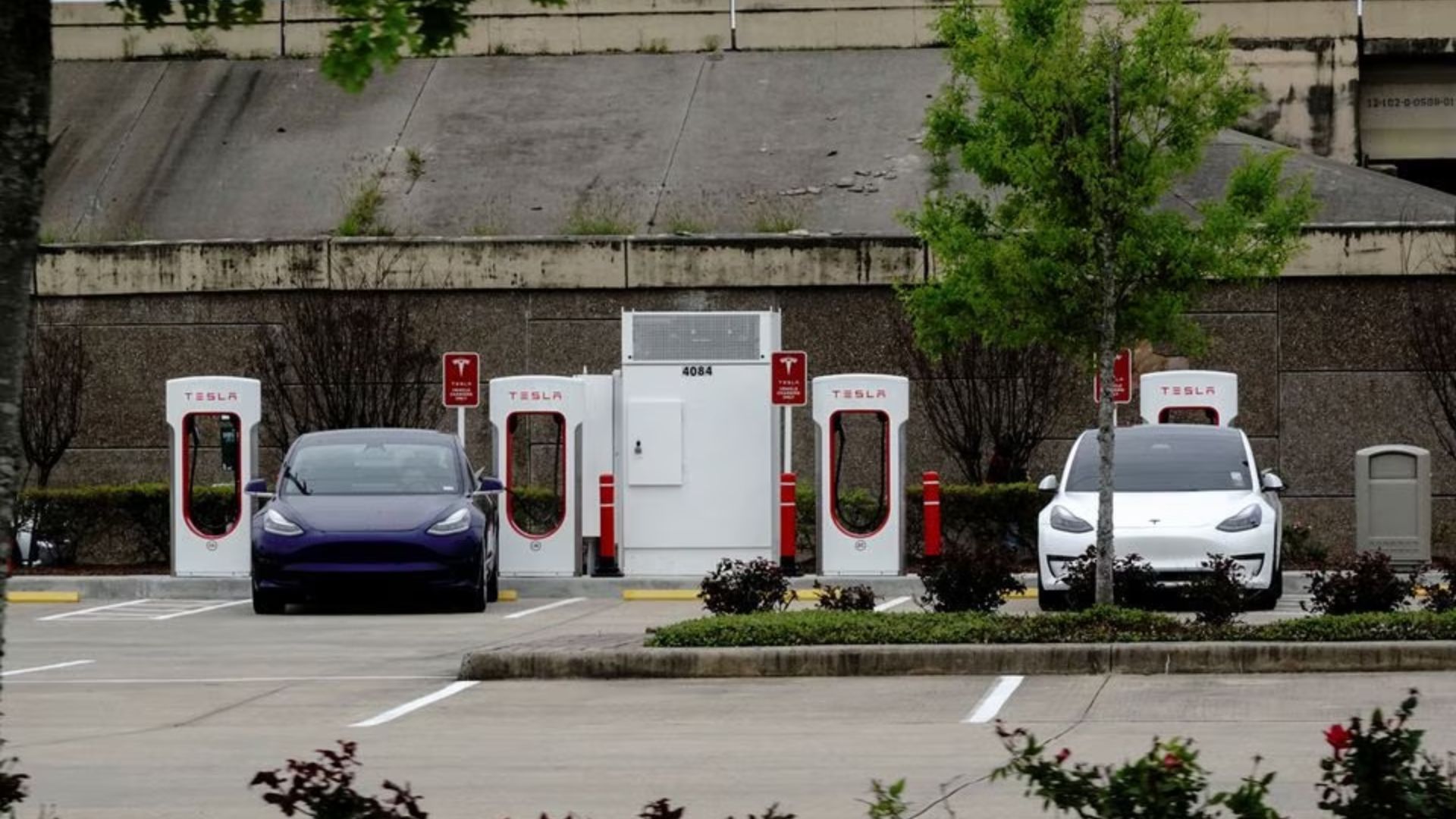SAN FRANCISCO, July 11 (Reuters) – Texas again deferred a vote on grants of federal funds to build electric vehicle chargers to Aug. 16 amid pushback from some charging companies over its plan to include Tesla’s (TSLA.O) technology in charging stations, according to three sources.
A spokesperson at Texas’ department of transportation confirmed that the issue was removed from the agency’s July agenda “at the discretion of the commissioners” but said the agenda for the August meeting had not been finalized.
The vote in Texas is being closely watched in the industry as it could drive similar moves in other states.
Reuters reported last month that Texas planned to mandate EV charging companies to include Tesla’s North American Charging Standard (NACS) standard if the companies wanted access to a program to electrify highways using federal funds.
Days later, a group of EV charger makers and operators pushed back on the plan saying they needed time to test the interoperability of Tesla connectors with the U.S. standard Combined Charging System (CCS).
The vote had already been delayed to Tuesday from June 29, with three members of Texas’ transport commission, including the chairman, saying they wanted to understand NACS and its implications before voting on the issue, according to a recording of the meeting on its website.
“We do think the reason why this decision is being punted is there is reaction within the industry that this is a big announcement and let’s just do this responsibly,” one source, an executive from an EV charging company, told Reuters. The person declined to be named as the policy discussions were private.
“Texas is a bit of a bulwark. What they do sets a precedent for other state transport departments. The clout that they can throw around is pretty powerful,” the person said.
Washington state has talked about similar plans and Kentucky has mandated that EV charging companies include Tesla’s plug.
The rollout of the federal funds require charging companies to offer CCS. But plans to adopt Tesla’s technology by Ford Motor (F.N) and General Motors (GM.N) have prompted a flurry of automakers and charging companies to embrace the technology.











